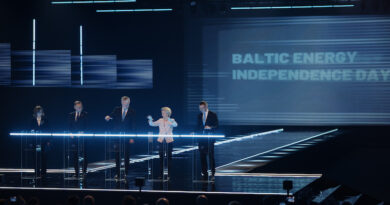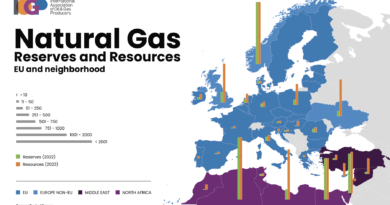
Putting energy efficiency first: the key for a competitive energy transition
In the wake of its commitments under the Paris Agreement, Europe is showing leadership in the shift towards a modern and clean energy system.
Indeed, energy will be decisive for implementing the Paris Agreement as two thirds of Europe’s greenhouse gas emissions are related to energy production and consumption.
To accelerate the necessary public and private investment towards the clean energy transition, the European Commission tabled the Clean Energy for All Europeans package in November 2016 which is now being negotiated by the co- legislators.
This package sets the most advanced regulatory framework to reinforce Europe’s leadership in the clean energy transition and to modernise the EU economy.
This package represents a clear opportunity for Europe and has three main goals: putting energy efficiency first, achieving global leadership in renewables and providing a fair deal for consumers.
In this context, ‘putting energy efficiency first’ is not an advertising slogan but a fundamental principle.
It is a concrete and productive priority with positive impacts for all European energy consumers.
Let’s not forget the cheapest, cleanest, and most secure form of energy is the one we do not use. That is why the Commission is promoting new and ambitious energy efficiency measures to bring further savings to consumers and to accelerate the development of energy efficiency technologies.
Building on the progress achieved through the existing regulatory framework notably the existing Directives on Energy Efficiency and on the Energy Performance of Buildings, as well as rules on Ecodesign and Energy labelling the aim is to set an ambitious energy efficiency target for 2030, as well as measures to improve the energy performance of products and buildings. This will send the right signal to European investors, companies, national authorities and citizens.
It is worth being ambitious. A higher ambition for energy efficiency means higher benefits for the environment as well as higher returns on investment. It increases the competitiveness of industries especially the energy intensive ones, and contributes to reducing the energy bills of consumers.
Besides, it reinforces Europe’s energy security. For every additional 1% increase in the 2030 energy savings target, combined with the 2030 targets for renewables and greenhouse gas emission reduction, the EU can reduce its gas imports by more than 3%.
Energy efficiency is not only one of the most cost effective ways to support the transition to a low-carbon economy; it is also an effective way to create investment, growth and employment opportunities in Europe as well as better living conditions for the benefits of all Europeans.
This is particularly true in the buildings’ sector, where a considerable cost effective energy saving potential exists. Just consider the facts: the building sector is the largest energy consumer in Europe, accounting for 40% of final energy consumption and 36% of greenhouse gas emissions in Europe.
Besides, the construction industry provides already 18 million direct jobs in Europe and accounts for 9% of our GDP. Construction activities that include renovation work and energy retrofits add almost twice as much value as the construction of new buildings.
In that context, it is very positive that an agreement was reached on the revised European Performance of Buildings Directive, with a very large majority in the European Parliament. This sends a very strong signal towards the clean energy transition.
The revised Directive on the European Performance of Buildings will boost investor certainty and help to increase renovation rates, while taking advantage of all technologies and progress available such as ICT, smart building technologies and e-mobility.
It will stimulate the uptake of digital technologies for buildings, in particular smart metering technologies and smart home appliances, and it will boost engineering industries representing 11 million jobs in the EU.
It will also facilitate the penetration of renewable energy and encourage the active participation of consumers.
At the same time, raising the energy performance and intelligence of buildings will strengthen Europe’s competitiveness, reduce the level of greenhouse gas emissions, decrease energy dependence and will foster innovation and the creation of local jobs.
In that context, the energy renovation of buildings could become a real European source of growth and jobs.
In addition, energy efficiency is one of the most powerful tools to address energy poverty and to ensure that no citizen is left behind in the energy transition. Energy efficiency measures focusing in priority on social housings and buildings will provide tangible health and lifestyle improvements to our citizens and will contribute to alleviate social inequalities.
It is now over to Member States to show their level of ambition by transposing these measures into national law by early 2020.
The measures put forward by the Commission as part of the Clean Energy for All Europeans package contribute to a European Union that protects, empowers and defends.
This is also the aim of the next EU budget for 2021-2027 proposed by the Commission early May where energy transition is recognised as a clear priority to achieve a modern and low carbon economy in the EU.
Considering the various benefits of energy efficiency, it is worth being ambitious as this will underpin the clean energy transition in Europe for the next decades.
This is also highly relevant in the context of the future Long Term Decarbonisation Strategy under the Paris Agreement that the March European Council asked the Commission to present. Public consultation on this long term strategy will be launched in the coming weeks.




